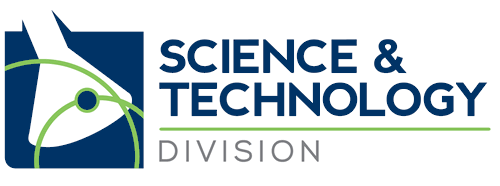1.2K
It seems that many scientific and technical translators take a roundabout path in their careers. Is that true for you? Tell us about how you became a translator with your specialization.
There was no defining moment. While studying chemistry in Poland, translating scientific articles from English to Polish was part of what I needed to do to complete my classwork. Due to this early exposure I became a scientific and technical translator without really realizing it. I learned to translate technical writing gradually, while working on research of scientific publications in both English and Polish.
While living in Princeton, NJ, I sent my resume to a local translation agency that assigned me to translate for a multi-national contract research organization. After moving 6 years ago to Washington, DC, requests from other clients followed. At some point I decided to change my career and focus on translation work. There were several reasons for that decision: flexibility; working from home; time to produce high-quality translations; interesting projects from several clients; etc.
Was it challenging for you to combine your scientific and linguistic interests? What advice would you give to translators or interpreters just starting their careers?
The technical part was not challenging at all. It just developed over many years. At school I was very interested in not only chemistry but also languages and writing. It was hard for me in high school to decide what to study. Eventually I decided on chemistry (to some extent due to my parents asking me, “So what will do with your language/writing degree?”).
Now the real challenge is keeping updated because the language is constantly changing. By reading a lot in both languages and accepting a variety of science and medical documents to translate, I find it easy to stay up to date. In addition, occasionally I undertake interpretation assignments to keep up with medical terminology and the language used by the court systems. Also I enjoy meeting people in these places with new stories to tell.
The most surprising and challenging part of the translation profession is the fact that we need to constantly market ourselves. As a scientist I was judged by the amount of papers which I published and the quality of the journal. As a translator, I needed to learn also how to run a business. I remember well one of the very helpful workshops on business led by Marian Greenfield. I use the tips that I learned there all of the time.
My advice is to take continuing education courses, have courses online, and read daily (out loud sometimes) in your languages. Learning from discussions with colleagues is invaluable.
What is unique about your skill set? What sets you apart?
My Master and PhD degrees in chemistry and biochemistry give me a better understanding of technical texts. Most importantly working as a scientist gave me the tools for conducting thorough research in any field and finding the correct terminology.
An in-depth knowledge of my fields in both languages has been tremendously helpful. While studying and working in academic research labs in Poland and at several medical scientific institutions in the US, including Columbia University, I learned how to reliably translate documents on a wide scope of technical subjects.
What is your favorite type of interpreting assignment or text to translate? What makes it fun for you?
I enjoy translating scientific papers and patents. I spend a lot of time on researching these texts in order to be scientifically correct. It is fun because I really enjoy the intellectual challenge of digging into the details of a field.
Can you describe a project that you’re most proud of, or one that was particularly memorable?
One of the more memorable projects was a patent that had detailed descriptions of chemical reactions. I knew that there was no room for even one error in the translation because the entire patent might be jeopardized, resulting in substantial setback in research and waste of development money.
Are there any resources you use when translating that you’d like to share with readers?
For medical texts, I refer to www.uptodate.com, a subscription information source primarily used by US physicians. When I have questions about the surgical technique or medical diagnosis terminology, this is a good source for producing better translations. More importantly, I feel comfortable that clinicians and medical researchers will more fully comprehend the text rendered as it was in the original document if you better understand their specialty. Additionally, this site has a large section on pharmaceutical agents, listed by generic and brand (retail) names. The various brand names for each medicine are listed for every country. Drugs typically have different names depending on where they are sold, so this is very important.
How can readers learn more about you and connect with you?
Contacts are most welcome. I am on LinkedIn. My email address is yarborough.translations@gmail.com. I am also working on a dedicated webpage.
The SciTech Division events at ATA’s Annual Conferences have been a wonderful place to learn about others in the field. I’d also love to get involved with ATA’s mentoring program in the future.


